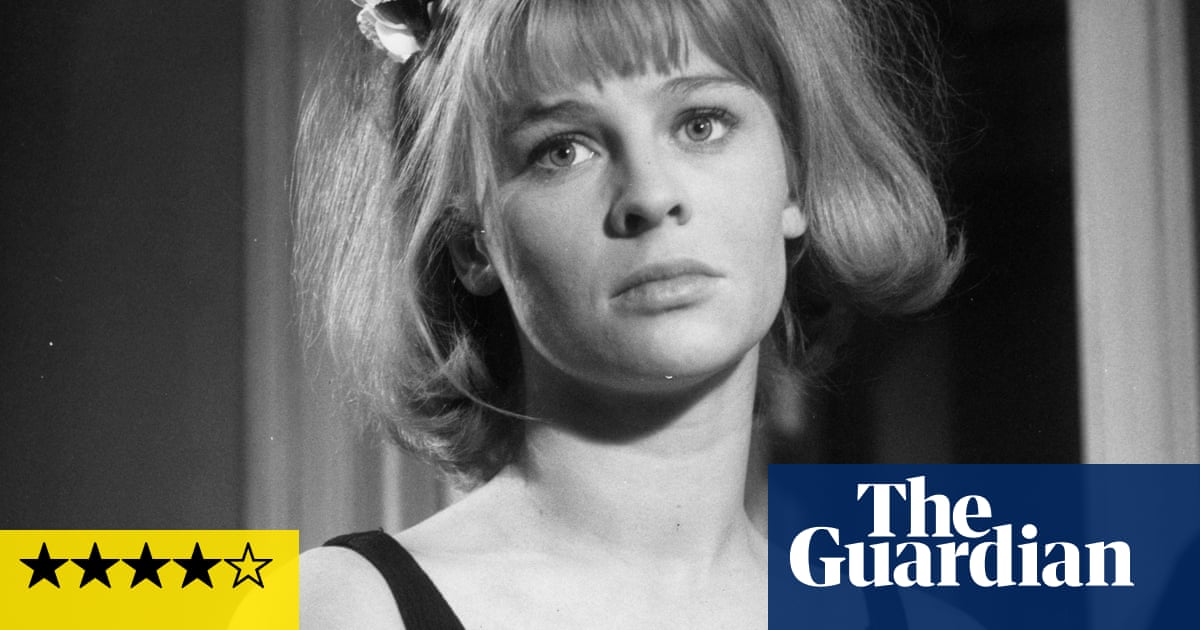Some of it feels a bit dated now, and that brittle, sophisticated chatter in the cocktail party scenes has a fingernails-down-the-blackboard screechiness that can’t have been intended at the time. But John Schlesinger’s winsome adventure from 1965 still has verve and ambition, a romantic satire of swinging London now on rerelease for its 60th anniversary.
Julie Christie plays Diana Scott, a model and actor who enjoys an insouciantly upward rake’s progress in smart-set London: an innocent, almost childlike Becky Sharp-type character, for all her dissolute encounters, and abortion and divorce are notably presented without sorrowing dismay and disapproval. The wry, Oscar-winning screenplay from Frederic Raphael imports and anglicises the influence of Godard, Resnais, Varda and the French New Wave; fashion models and advertising are vitally important; there is a media interview with a writer (English author and don Hugo Dyson has a cameo as a supposed author of provincial decency and integrity); and we get the occasional gloomy brooding about the bomb. Interestingly, however, the scenes set in Paris where Diana witnesses a live sex show, are a rather saucer-eyed English view of the naughty French, and would never pass muster in an actual French film. Having said which, Schlesinger manages freeze-frame images quite as well as the continentals.
Christie’s ingenue is a girl from a good English family, who got married too young to a decent but boring chap. Soon she is caught between two lovers played by two acting thoroughbreds whose faces have an amazing and sometimes near-gargoyle expression of worldliness: Dirk Bogarde and Laurence Harvey. Bogarde is Robert Gold, who fronts an earnest TV show about culture called Art and You. We see him conducting interviews in the street about what passersby think is most shaming in modern British society. Schlesinger gives us what looks like hilarious, genuine voxpop footage in which people declare that Britain’s most shaming things are, variously, traffic problems and the prevalence of homosexuality.
One of Robert’s interviewees is Diana who soon finds herself in an extramarital entanglement with him. When they go to a hotel room, Robert has to pretend they are a married couple by buying a suitcase and making it feel respectably heavy for the bellboy by covertly filling it with copies of the old London Evening News – the headline of which is an irresistible madeleine for non-swinging Britain: MINERS – ALL HOPE VANISHES.
Without any great agonising, Robert leaves his homely wife and children to move in with Diana in her swinging London flat (she is thrilled by the “gorgeous negroes” upstairs, a very 1965 script moment) and Robert introduces her to an elegant new stratum of society where she meets oleaginous smoothie Miles Brand, an adman played by Harvey; he gets her on his books and his German clients love Diana’s “Aryan” look. Diana also befriends a gay fashion photographer Malcolm (played by actor turned author Roland Curram) who accompanies her on holiday.
The film is full of incidental detail that will grip all fans of bygone Britain. Uptight Robert drives an Austin 1100 (like the one beloved of Basil Fawlty) whereas Miles drives a groovy Volvo sports car – the kind that Roger Moore had playing Simon Templar in The Saint. But the parade of ironies continues. Miles gets Diana promotional work at a grotesque charity event where people donate to famine relief while gorging themselves on food and wine, and even secures her a walk-on role in a sub-Hammer movie. She also plays the role of a Renaissance principessa in a silly TV ad for chocolate, filmed at the palazzo of a suave and recently widowed Italian nobleman who is entranced by Diana – and she reaches the Grace Kelly moment in her career.
Christie is always in danger of being upstaged by Bogarde and Harvey, pouting male divas both, and her performance is in fact a model of restraint and self-effacement compared with these preening exquisites. Bogarde shows us a flash of something spiteful and even sinister in the way he treats Diana at the very end, and also in his spasm of jealous rage when he realises she has been cheating on him, dragging her down an escalator in the London underground and bellowing the word “whore” in that refined voice. The bland, amiable, noncommittal Diana certainly doesn’t deserve that label. It’s directed with terrific punch with Schlesinger, who – as in Midnight Cowboy and Far from the Madding Crowd – has a flair for showing us innocents who wish to survive.
Darling is in UK cinemas from 30 May and on 4K UHD and Blu-ray from 16 June
